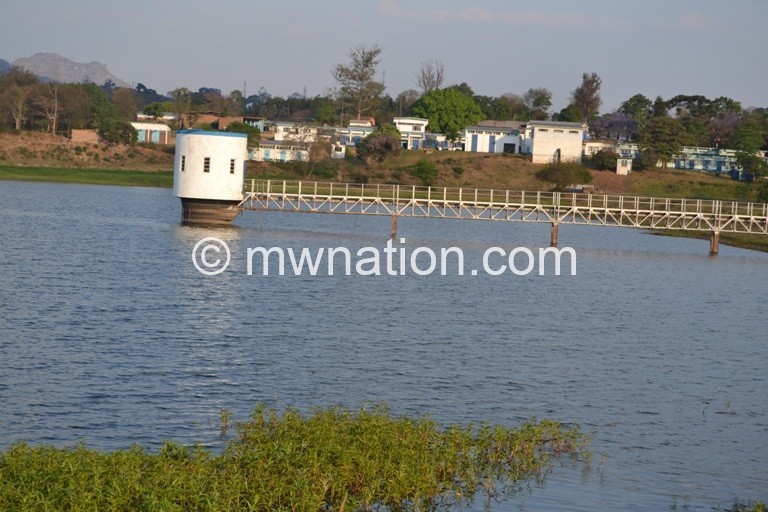BWB 5-year plan sets ambitious targets
Blantyre Water Board (BWB) yesterday unveiled a five-year strategic plan which targets to increase water production and customer base by 2025 and move away from its loss-making record.
In the strategic plan, running from 2020 to 2025 launched in Blantyre by Minister of Forestry and Natural Resources Nancy Tembo, the water utility seeks to be a profit-making government-owned entity and deliver to the expectations of the people.

Besides using internally generated money, BWB says it will target government and donor funds to finance the planned capital projects.
The strategic plan mirrors the Malawi 2063, the country’s long-term development blueprint, and encompasses goals and aspirations of the government in the provision of potable water to people within the BWB’s supply area.
Speaking during the launch, BWB board chairperson George Nnesa assured the patrons, who included big and small business owners and consumers, that the parastatal will ensure the set targets are achieved.
He said BWB has identified strategic areas to address during the period to ensure the set targets are met, including reducing non-revenue water from 54 percen to 30 percent, finding alternative energy sources, implement value for money investments and enhancing revenue growth and collection.
Other targets include improving collection efficiency from 30 percent to 65 percent, improve water production from 96 000 cubic meters per day to 167 000 cubic meters.
Said Nnnesa: “The major issues we want to address are issues to do with electricity because 80 percent of our revenue goes to payment of energy bills, so we want to have our own energy source.
“Secondly, we want to have a new pipeline from a new source in Nkula so that we increase water production to meet the demand for water.”
He appealed for help from government to settle its outstanding bill to the Electricity Supply Corporation of Malawi in excess of K26 billion.
Nnesa could not attach a tangible cost of the strategic plan, indicating that there are several components of the plan which will be coming in as the plan progresses.
BWB chief executive officer Robert Hanjahanja said the strategic plan seeks to improve income to K184 billion by 2025.
He said the strategy borders on financial growth and sustainability, customer and stakeholder satisfaction, capacity development and productivity and infrastructure growth and business continuity.
In her remarks, Tembo commended BWB for the plan, highlighting that the board’s financial position is in bad shape and there is need for the strategic plan to address such issues.
She said: “This water board is insolvent and really needs to go back it its winning ways.
“What is required is commitment to ensure that what is in this plan is actualised.”
Tembo admitted that BWB has a huge power bill, saying it is unsustainable and the board needs to find alternative ways to move out this situation.
The financial performance of BWB and other water boards has been deteriorating for the past years due to various factors.
Treasury figures show that BWB’s financial performance has been worsening largely due to non-implementation of the cost-reflective tariffs, which had not been adjusted in the last three years, high non-revenue water due to dilapidated pipeline systems and high electricity costs.
As at mid-year of 2020/21 financial year, BWB registered a net loss of K4.2 billion.
The parastatal has since admitted that its financial position is in bad shape and is working on a turn-around strategy to improve the position.
BWB has indicated the feat will require it to improve some measures, including imposing cost-reflective tariffs, stakeholder support and reduction of energy costs.





